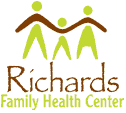Herbs / Vitamins / Drugs / Supplements
Cholesterol Drugs - The Truth Behind the Advertising
I have noticed a television ad that piqued my curiosity. It features an unconscious patient being wheeled into an emergency room and the doctor asking the EMT about what meds the patient had been taking. When the EMT answers cholesterol-blockers, the narrative points out that blocking cholesterol is insufficient to prevent heart attack. My first reaction was - "Duh!" We've known that forever.
However, what intrigued me about the commercial was that it was not immediately apparent what was being sold. The standard link "Ask your doctor . . ." didn't include what drug you were supposed to be asking for. It simply focused on the benefits of raising so-called "good" cholesterol. So, I spent considerable time researching the company sponsoring the ad, and this is what I discovered.
The company is Abbott Laboratories and the drug is called Trilipix(TM). It is a class of drug known as a fenofibrate, and these compounds have been on the market at least since the 1990s. However, they have been used only in the most extreme cases of hyperlipidemia (triglycerides in the range of 1,000 to 2,000 mg/dl; normal is <150 mg/dl) due to the adverse side effects. These side effects included: 1) a doubling of the occurrence of gallstones on patients taking the drug; 2) two different studies revealing a 22% and a 44% increase in mortality among patients taking the drug compared to placebo, associated with gastrointestinal complications and cancer; and 3) a separate study showing an increase in cardiac death, gall bladder surgery and appendectomy in the treated group. [source: drugs.com]
Now, this version of fenofibrate (Trilipix(TM)) was combined with Crestor(TM) in an effort to raise HDL cholesterol. Crestor(TM), as you may be aware, is a statin being marketed for cholesterol control on the grounds that it is the only statin that improves HDL cholesterol. It also happens to be the drug with the most serious side effects. These side effects include: liver damage, muscle damage (indicated by pain and tenderness in the muscles which can lead to muscle degeneration), unexplained changes in urinary output (indicative of kidney damage), pancreatitis, and memory loss. These side effects are more common with Crestor(TM) than with other statins because - even at the lowest dose - it is so much stronger than the other meds. By the way, it is also much more expensive. [source: abbot.com -- removed by Abbot]
Now we are putting these two toxic drugs together and, instead of reserving them for the most "serious" cases, are routinely recommending them to the general public. After substantial research (believe me, it wasn't easy to find), I discovered that these drugs, in combination, can increase the incidence of both muscle damage and kidney failure. [source: abbot.com -- removed by Abbot] However, the press releases make almost no mention of this downside, focusing instead on the "benefits" to be gained by taking two toxins instead of one. [source: reuters.com]
In addition to the side effects, and hidden in the fine print, is the statement "TRILIPIX has not been shown to prevent heart disease or heart attack." (Ibid, [source: abbot.com -- removed by Abbot]] This statement is in direct contravention of the impression left by the ad that first caught my attention.
Another serious side effect of the statin drugs is that they deplete the enzyme CoQ10, thus leading inevitably to heart failure as the heart muscle weakens. There is also increasing evidence that taking statin drugs contributes to dementia. [source: newsmax.com]
Another interesting side note is that the user recommendations for these drugs all indicate that they are to be used in combination with "appropriate" diet modifications. Just what constitutes "appropriate" is the big question. Watch for my next newsletter for more information on "the good, the bad and the ugly" where American nutritional practices are concerned. (Hint: Don't believe all the hype about "low fat.")
So, what is a person to do? Particularly in light of the fact that these drugs are being marketed aggressively for all patients with Type 2 diabetes or any dyslipidemia - a moving target, by the way, as ever-lower levels of cholesterol are now being labeled as "bad."
First of all, inform yourself. Cholesterol does NOT contribute to heart disease, nor does lowering cholesterol via statin medications prevent heart disease. If you have not listened to my audio CD "Healthy Heart Solutions," call the office and obtain a copy. The cost is $29 for a wealth of information on natural and effective strategies for keeping your heart and your mind well. If you want help with a nutritional program designed especially for your body's chemistry, call the office and make an appointment for a nutritional consultation so that we may keep you free of life-threatening side effects from the pharmaceutical industry.
Does this apply to you? If so, see our information on Consultations.
[TOP]
© 2011 Richards Family Health Center. This site or any part may not be reproduced without the written consent of Richards Family Health Center. N Rowan Richards, DC, DABCI, FIACA at 242 South Glendora CA 91741. 626 963 1678. email:richardsfhc@richardsfamilyhealth.com. This site is Not intended to dispense health advice or serve as a substitute for actual patient contact with a qualified healthcare provider. Our sole purpose is one of education. It is our expectation that our site can educate our visitors about the efficacy of some healthcare treatments that exist as an alternative to conventional medical wisdom.
PRIVACY POLICY: Richards Family Health Center takes your privacy very seriously. Be assured that we do not sell or rent your contact information to anyone.


